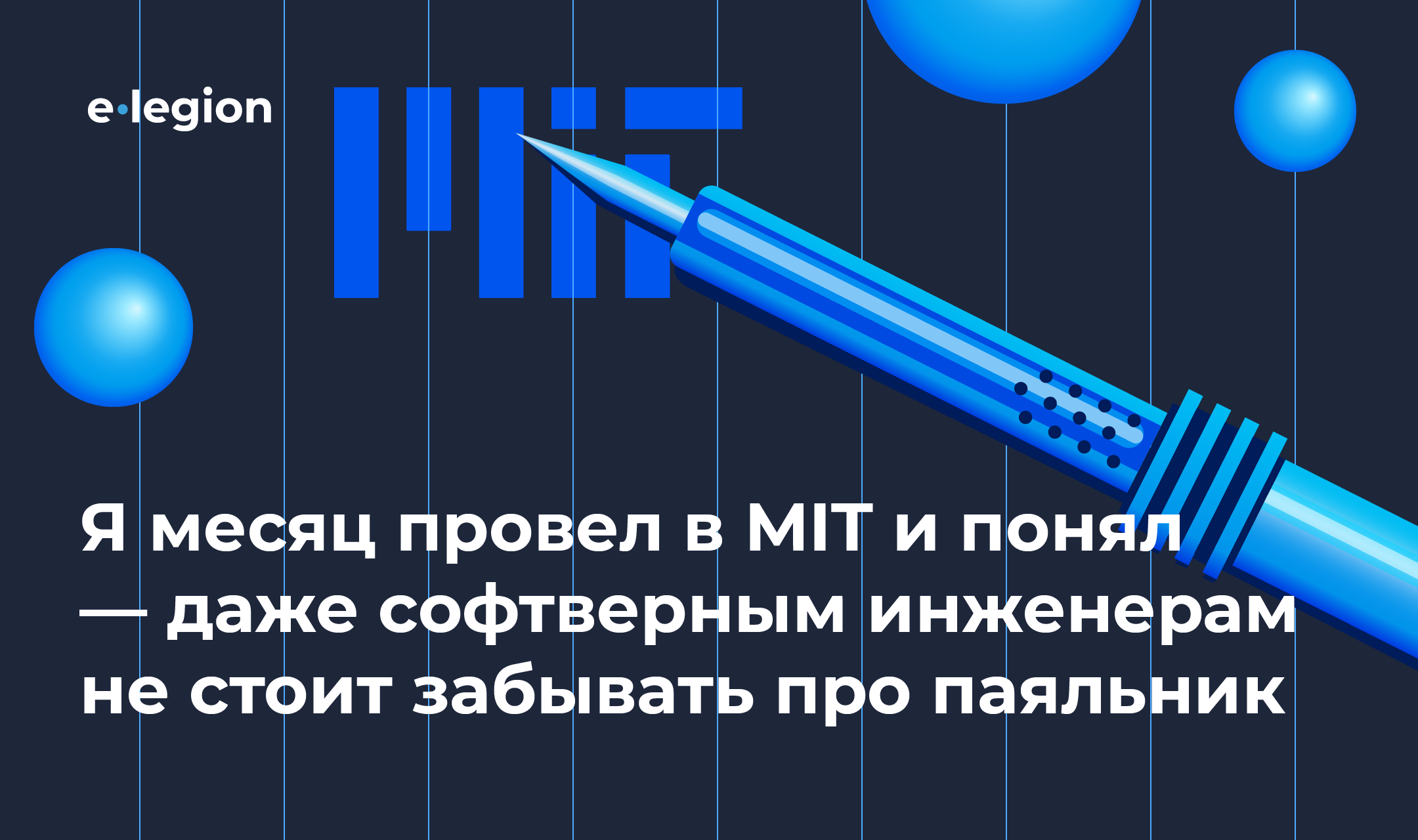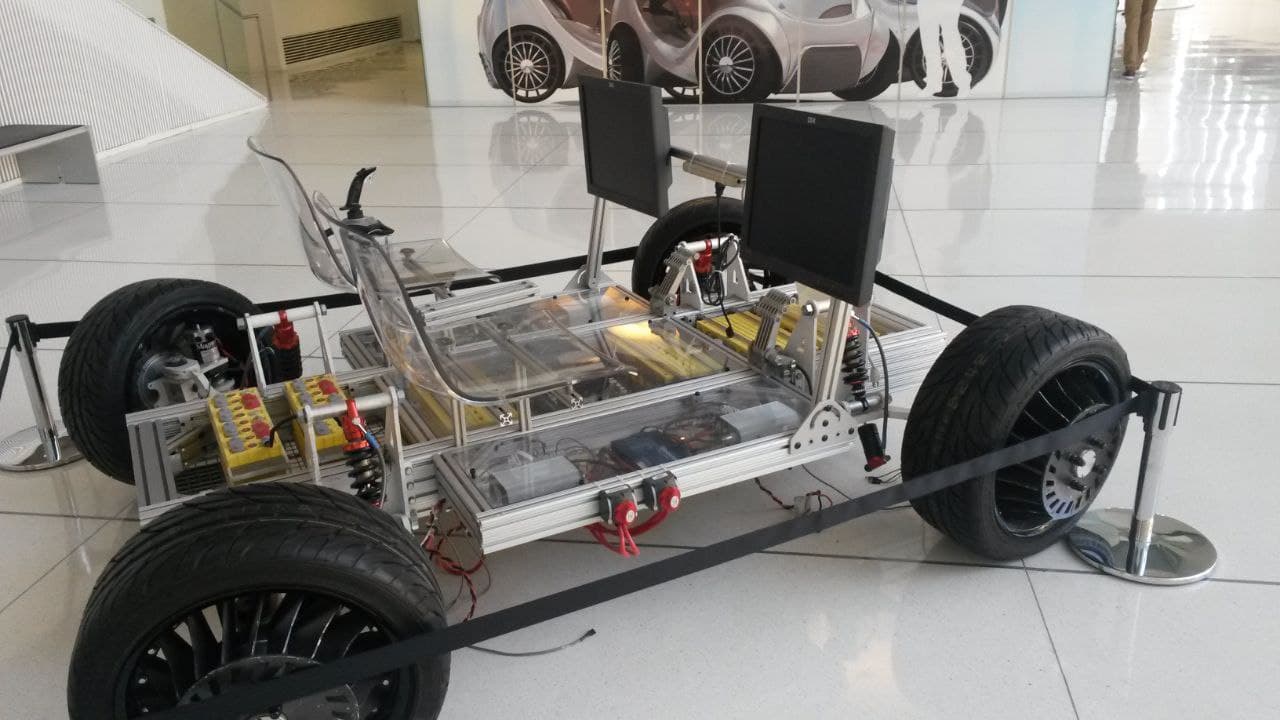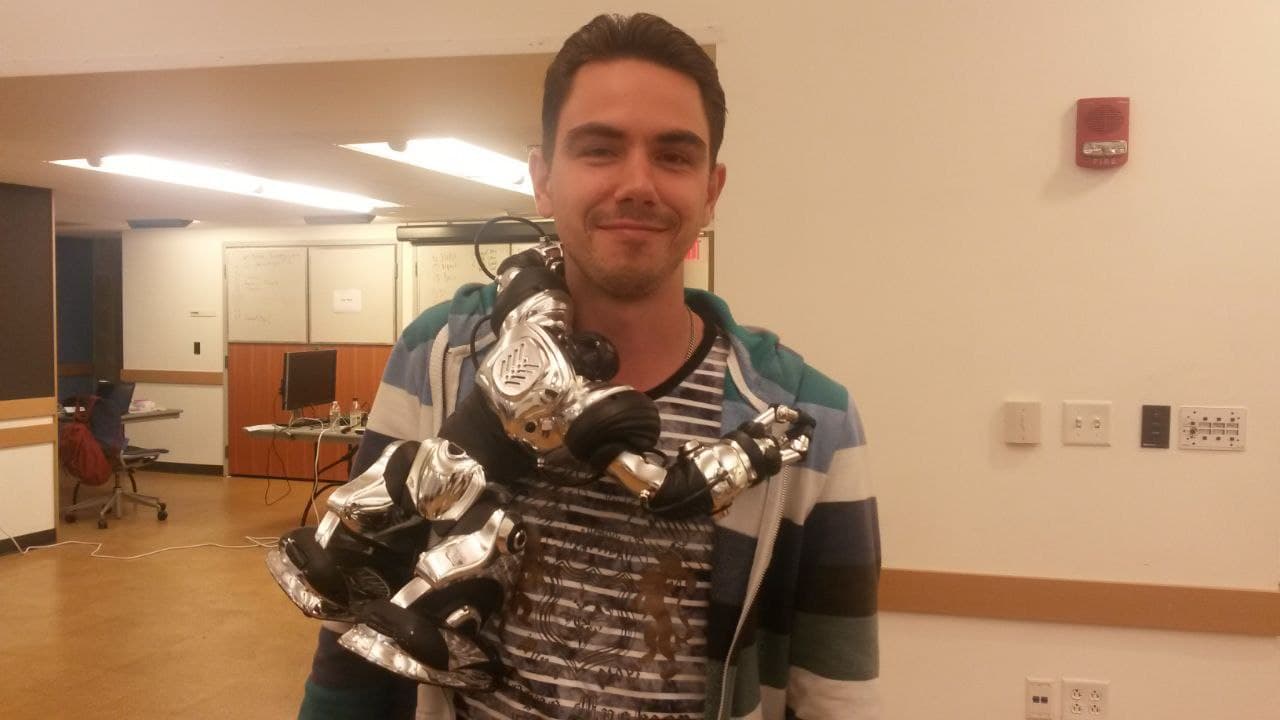
As a child, my father sometimes trusted me with his soldering iron. I was engaged in simple soldering, but more often I watched as my father's hands either dipped the soldering iron into rosin, or caught a piece of solder. The smell of rosin has always awakened memories in me ever since. Who would have thought that I would be just as enthusiastic about soldering, but not with a batin, but with a fancy American soldering iron, and not in the kitchen in my childhood apartment, but at the Massachusetts Institute of Technology.
What do you expect from one of the coolest universities in the world? Exhausting lectures and endless formulas on chalk-white boards? Sure. Wise seven spans in the forehead professors from all over the world? Required. But the prestigious Massachusetts Institute of Technology is famous for more than that. MIT is prized for its proximity to the industry. Boston's university campuses are just blocks from tech giants like Google and Microsoft. Students are taught not only engineering, but also its practical application, as well as the ability to sell your idea well, or find a person who will push your innovation to the market.
The famous Harvard is two tube stops from MIT. Smart guys - Harvard graduates who know business, just go to labor engineers and create new companies. This place generates new startups every day. And I was not at all surprised when I heard another assignment from the teacher of the workshop. Each of us needed to get a discount at local stores by all means. One guy tried so hard at the checkout in the online Best Buy that the saleswoman wrote him her number and name on the check.
Well, this is also a success.
St. Petersburg, spring 2013 - I have ITMO and a few development projects behind me.
By that time, the very young Russian Skoltech (Skolkovo Institute of Science and Technology) was recruiting students for a master's degree. Education in English, all in the best traditions of MIT, and moreover, Skoltech and was created with the support of the Massachusetts Institute of Technology. MIT professor Edward Crowley has been invited to the post of Skoltech rector. The Master's program is preceded by a trip to the USA - a month-long Innovation Workshop. Without hesitation, I submit the documents and begin to prepare for the entrance tests.
I remembered the admission process as follows: you collect and send documents, you are invited to Moscow, where a three-day hackathon and interviews are held. You can also take TOEFL there. Everything turned out so quickly that I was already working on the American visa in St. Petersburg. Fingerprints, a few questions for life, supporting documents from Skoltech and an account statement with a tidy sum. Graduate enrollment and visa approval - I don't know what I was more happy about!
I had to prepare an impressive package of documents. A diploma with a high GPA, two letters of recommendation, a resume, a list of publications, an essay on your goals and aspirations, and a personal statement. How to translate the latter, I don't really know. Something like a description of the life path "how I came to a life that I studied and learned." I had to shake up my memory all my life, starting from school, and think about many things that, as it happened, I had not thought seriously before.
Flight to Boston
took about 10-12 hours. We were greeted, put into typically American huge black jeeps and taken to the hostel, where pizza was waiting for us. God, what else can a person dream of after a long flight?
To explore the city, we arranged a scavenger hunt in Boston. With the help of hints, we looked for special coins that were scattered across the streets. I think it looked funny: groups of Russians and not only students rush about Boston's back streets, looking for coins and pestering the locals with endless questions. But we had fun! There were no classes on weekends, for several weekends we managed to explore the surroundings, go yachting, go to the ocean and even hit the road to New York.
Near MIT and Harvard, there are shops where you can buy T-shirts, mugs, and other university-branded items. And all this is not for tourists. Students are genuinely proud of where they study. On T-shirts every now and then the inscription "Nerd pride" flashes. Bostonians know and respect the people at MIT. One evening I made my way to a concert in Boston.
On the way back, I met a lot of people waving at me and shouting "MIT rules" and "engineers forever".
After that, you are simply overwhelmed with motivation to study further!

On weekdays, every day was scheduled by the hour. We started at 9 am and finished closer to 7 pm. Often, in order to keep up with everything, teachers continued their classes at lunch, on the lawn or in a cafe. Once we got a little tired and capricious. Someone muttered - they say either dinner or study. Then someone suggested: "Let's combine, but only if there is puree." We didn’t like lectures during meals, but they agreed with mashed potatoes. Everyone enthusiastically supported this idea. And you know, the teacher rolled out a bowl of puree for us the next day! “Oh, these strange Russians, to hell with you, eat your mashed potato,” he laughed, and continued his lesson. We were delighted.
And this is the whole spirit of the relationship between students and teachers. This is a story about respect and passion. Everyone around is plowing, figuring, and you, too, start to accelerate. When you come to the person who helps you put together your individual study plan at MIT and you say, "I want these courses and these more." He looks at you with relief and gives out: "Finally, a man who knows what he wants."
“Walls” also help in immersion in the process. All auditoriums are available, there are no guards. There is wonderful free wifi throughout MIT. (Honestly, at first I thought that this is how it is all over America. What was my disappointment when I went to Boston!).
Here is a partial list of what we learned in 3 weeks:
mathematics in innovation, how to achieve rapid success, leadership, intellectual property, innovation and design in engineering, how to write correctly, innovation and production, product development and design, ethics and product-to-market. Leadership was taught by a serious guy with a rank from the US Army. Hearing his voice, I immediately recognized him: it was the same voice from American war films.

In addition to classes from morning to evening, in my free time I had to make my own project or product in 3 weeks. Someone developed automated watering, our team rolled out a video surveillance system to recognize that a person is falling asleep. There were also separate team-building games to solve some interesting problem. For example, it was necessary to remove the "cover from the oil well" using ropes. Repair it and put it back. Provided that you can approach the well no closer than 4 meters.
We were taught how to create our own startups and companies. Yes, they were indoor, but more than once this experience will come in handy for me in my career, for other guys in science.
There I again took a soldering iron in my hands and saw live all sorts of robotic arms
At one of the Innovation Workshop classes, the teacher handed me a soldering iron and said something like: "Solder, son." One teacher used light to transmit sound. There is a problem with the transmission of information from satellites to the ground. Alas, you can't leave the wire. And what if you can shoot a beam, a huge thing will receive it and everything will work! This is how he explained the following actions: “Look what I can! He gives something like a receiver to one of us, and he himself takes a small pointer that shines with a barely visible light. He aims the beam at the receiver and we hear the music ... When he removes it, the music stops. How do you do it, magician?
And so every day. What I saw aroused sincere interest, some kind of childish admiration and a desire to participate in all this. It was as if a beam was aimed at me and music appeared, which I had not noticed before. Well, if not music, then a second wind.

After that trip, some of the guys went deep into science and studied for a PhD in England, someone went to data science, and someone opened their own company and launches satellites into space. I converted my inspiration into passion: I studied in detail everything that was given at Skoltech, and what was not given - I selected and studied. The robotics laboratory at Skoltech is modeled after the corresponding laboratory at MIT. I spent a lot more time in it, gaining access to drones, 3d printers, laser cutters and other cool equipment that I had not seen before.
All the knowledge that I received had a practical orientation. And this is very cool. You don't just read differential equations, you then display MRI scans with their help.
It's like soldering a complex circuit: you are as involved as possible - with your head and hands.